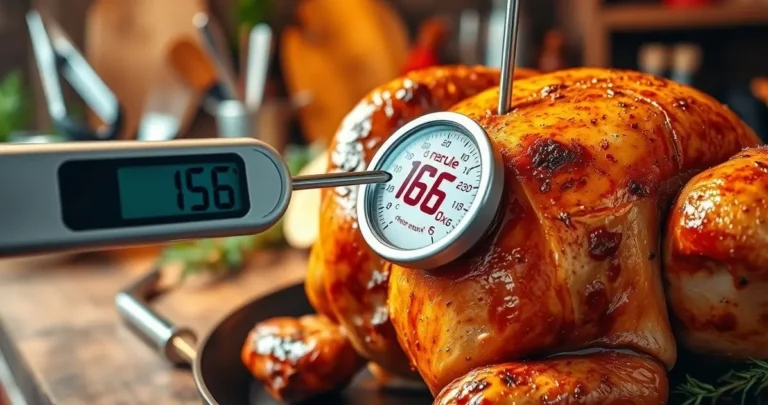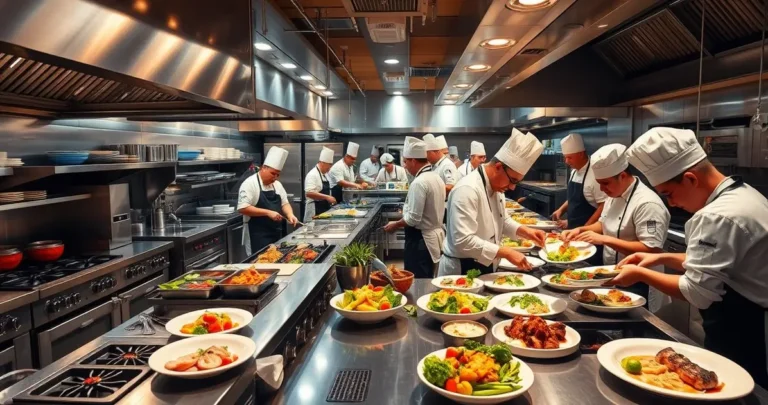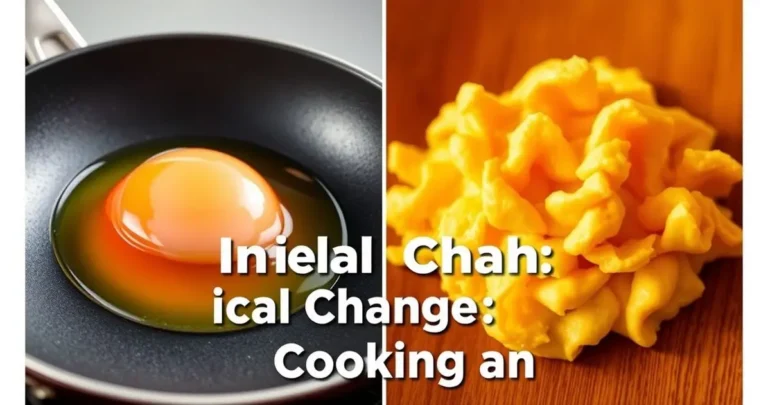Cooking is often seen as both an art and a science, raising the question of whether it is purely a talent or a skill that can be developed. Many believe that creativity and intuition play essential roles in the culinary world.
Is cooking a talent
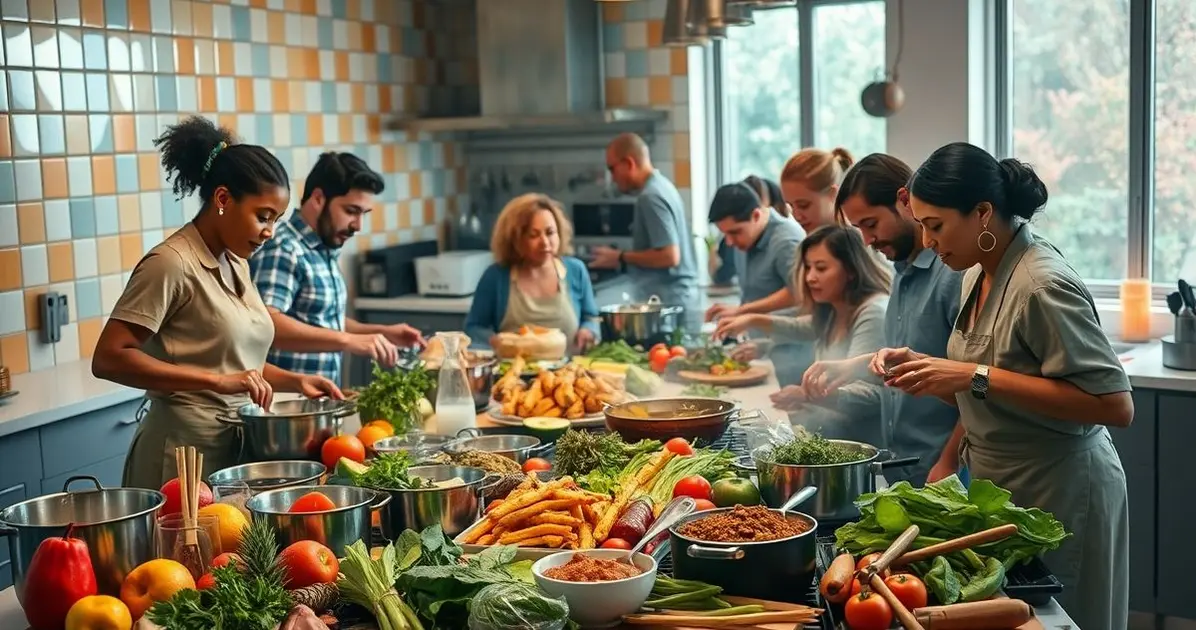
The debate about whether cooking is a talent continues as people discuss the importance of innate ability versus practice and learning. Some chefs have a natural flair for combining flavors, while others may achieve greatness through dedication and experience.
Natural Flair vs. Learned Techniques
The debate between natural flair and learned techniques in cooking is a fascinating one. On one hand, some individuals seem to be born with an innate ability to create mouthwatering dishes effortlessly. You know the type—those friends who can whip up a gourmet meal with just a few ingredients, impressing everyone around the dinner table. This natural talent often includes an intuitive understanding of flavors, textures, and presentation.
However, it’s essential to recognize that cooking is not solely about having a “gift.” Many successful chefs and home cooks have reached their level of expertise through rigorous training and practice. Learning techniques such as knife skills, seasoning, and cooking methods can elevate anyone’s culinary game, regardless of their starting point.
Mastering the Basics
For instance, mastering the basics of cooking—like how to sauté vegetables or roast meats—can significantly impact the outcome of a dish. These techniques can be taught and learned over time. Even those who seem to have a natural flair often credit their success to the countless hours spent in the kitchen, refining their skills and learning from their mistakes.
Learning from Experience
Experience plays a crucial role in bridging the gap between natural talent and learned skills. The more time you spend cooking, the more you understand the nuances of flavors and techniques. Consider this: a dish that may seem simple, like a classic risotto, requires practice to perfect. It’s not just about following a recipe; it’s about understanding how to stir, when to add ingredients, and how to achieve that creamy texture.
Inspiration from Others
Moreover, learning from others can also enhance your cooking skills. Watching cooking shows, taking classes, or even asking friends for tips can provide valuable insights. You might discover new techniques or flavor combinations that you never thought of before. This exchange of knowledge can help bridge the gap between those with natural talent and those who are learning.
In conclusion, while some people may have a natural flair for cooking, it’s essential to remember that skills can be cultivated through practice and dedication. Whether you’re a natural or a learner, the journey in the kitchen can be incredibly rewarding, filled with delicious discoveries and personal growth.
The Science of Cooking Skills
When we talk about cooking, it’s easy to think of it as an art form, but there’s a significant scientific aspect that plays a crucial role in developing cooking skills.
Understanding the science behind cooking can elevate your culinary creations and help you become a more confident cook.
The Chemistry of Cooking
At its core, cooking involves a series of chemical reactions. For example, when you heat sugar, it caramelizes, transforming from a solid to a liquid and then to a rich, golden-brown syrup. This process not only enhances the flavor but also adds depth to your dishes. Knowing how and why these reactions occur can help you manipulate ingredients to achieve desired results.
Temperature Matters
Temperature control is another critical element in cooking science. Different cooking methods require different temperatures to achieve the best results. For instance, searing meat at high temperatures creates a delicious crust due to the Maillard reaction, while lower temperatures are essential for slow cooking to break down tough fibers in meats. Understanding how temperature affects cooking can lead to better texture and flavor in your dishes.
Ingredient Interactions
Moreover, the way ingredients interact with each other is fundamental to cooking. For example, the acidity of lemon juice can brighten flavors and enhance the overall taste of a dish. Similarly, salt not only seasons food but also helps to draw out moisture, intensifying flavors. Learning about these interactions can empower you to experiment and create dishes that are balanced and flavorful.
Science in Baking
Baking is perhaps the most precise form of cooking, relying heavily on scientific principles. The right balance of flour, sugar, and leavening agents can make or break a cake. For instance, understanding the role of baking soda versus baking powder can help you achieve the perfect rise in your baked goods. This precision is what makes baking both an art and a science, requiring attention to detail and a solid grasp of the underlying principles.
In conclusion, embracing the science of cooking can significantly enhance your culinary skills. By understanding the chemistry of ingredients, the importance of temperature, and how different elements interact, you can elevate your cooking from simple meal preparation to a more sophisticated culinary experience.
So, next time you step into the kitchen, remember that science is your best friend in creating delicious and memorable dishes.
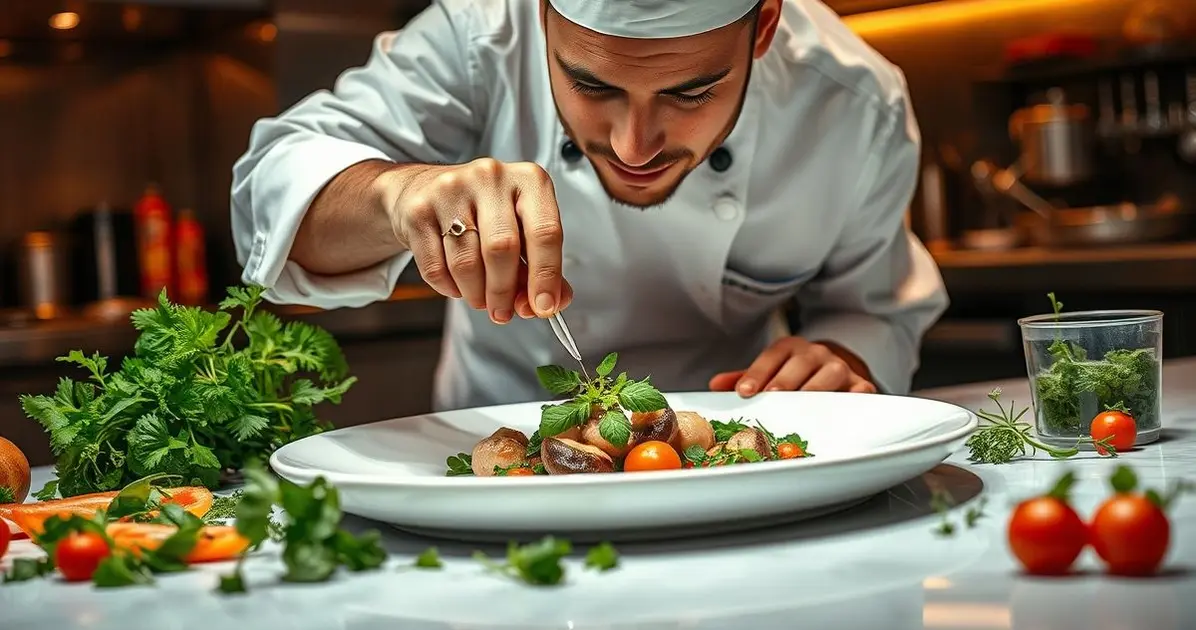
Importance of Experience in the Kitchen
Experience in the kitchen is invaluable when it comes to developing cooking skills. It’s often said that practice makes perfect, and this couldn’t be more true in the culinary world. The more time you spend cooking, the more you learn about the intricacies of food preparation and the nuances that can make or break a dish.
Learning Through Practice
Every time you step into the kitchen, you have the opportunity to learn something new. Whether it’s mastering a new technique, experimenting with flavors, or simply getting comfortable with your tools, each cooking session adds to your knowledge base. For instance, the first time you attempt to julienne vegetables might be a challenge, but with practice, you’ll find that your knife skills improve significantly.
Building Confidence
As you gain experience, your confidence in the kitchen also grows. You start to trust your instincts and make decisions on the fly, whether it’s adjusting seasonings or improvising with available ingredients. This confidence allows you to tackle more complex recipes and even create your own dishes, as you become more familiar with what works and what doesn’t.
Understanding Timing and Temperature
Experience also teaches you about timing and temperature—two critical components of successful cooking. Knowing when to add ingredients, how long to cook them, and at what temperature can greatly affect the outcome of your dish. For example, a perfectly cooked steak requires not just the right seasoning but also the right timing to achieve that ideal medium-rare. Through experience, you learn to gauge these factors more accurately.
Learning from Mistakes
Let’s face it: not every dish will turn out perfectly. However, these mistakes are often the best teachers. When you burn a sauce or overcook a piece of meat, it’s an opportunity to reflect on what went wrong and how to avoid it next time. This trial-and-error process is a vital part of becoming a skilled cook, as it builds resilience and adaptability.
In conclusion, the importance of experience in the kitchen cannot be overstated. It’s through hands-on practice that you develop your skills, build confidence, and learn to navigate the challenges of cooking. So, whether you’re a beginner or an experienced home chef, remember that every cooking session is a chance to grow and improve your culinary craft.
Creativity and Perseverance in Culinary Mastery
Creativity and perseverance are two essential ingredients in the recipe for culinary mastery. While technical skills and knowledge are crucial, it is often the creative spark and the determination to keep improving that set great cooks apart from the rest.
The Role of Creativity
Cooking is not just about following recipes; it’s an art form that allows for personal expression and innovation. Creative cooks often experiment with flavors, textures, and presentations to create unique dishes that surprise and delight. For instance, a chef might take a classic dish and put a modern twist on it, incorporating unexpected ingredients or techniques. This kind of creativity not only makes cooking exciting but also helps in developing a signature style.
Moreover, creativity in cooking can lead to the discovery of new flavor combinations or cooking methods. Think about how many iconic dishes have come from someone daring to try something different. By allowing your imagination to run wild in the kitchen, you can transform ordinary ingredients into extraordinary meals.
The Importance of Perseverance
While creativity is vital, it’s perseverance that keeps you moving forward, especially when things don’t go as planned. The kitchen can be a challenging environment, and not every dish will turn out perfectly. Perhaps you’ve attempted a complicated soufflé that collapsed or a new recipe that didn’t quite work out. In these moments, it’s essential to remember that failure is part of the learning process.
Perseverance means picking yourself up after a culinary mishap and trying again. It’s about taking the lessons learned from your mistakes and applying them to future cooking endeavors. Many successful chefs have stories of failed dishes that ultimately led them to develop their best recipes. It’s this resilience that fosters growth and improvement in the kitchen.
Combining Creativity and Perseverance
When creativity and perseverance come together, the results can be truly remarkable. Think of the innovative chefs who push the boundaries of traditional cooking, using their creativity to experiment with new techniques while also staying committed to perfecting their craft. This combination allows them to create dishes that are not only delicious but also visually stunning.
In conclusion, creativity and perseverance are indispensable in the journey towards culinary mastery. Embracing your creative instincts while maintaining the determination to learn from setbacks will not only enhance your cooking skills but also make the process of cooking much more enjoyable. So, the next time you find yourself in the kitchen, remember to let your creativity flow and never shy away from the challenges that come your way.
Conclusion
In the world of cooking, the interplay between natural talent and learned techniques creates a rich tapestry of culinary art.
While some individuals may possess an innate flair for flavors and presentation, it’s clear that anyone can develop their cooking skills through practice, experience, and a willingness to learn.
Understanding the science behind cooking enhances our ability to create delicious dishes, while experience in the kitchen builds confidence and hones our instincts.
Moreover, creativity allows us to express ourselves and innovate, and perseverance ensures that we continue to grow despite challenges and setbacks.
Ultimately, the journey in the kitchen is about more than just mastering recipes; it’s about discovering your personal style and enjoying the process of creating.
So, whether you’re a novice or a seasoned cook, embrace the art and science of cooking, and let your passion guide you on your culinary adventure.
FAQ – Frequently Asked Questions about Culinary Skills
Can cooking be learned, or is it a natural talent?
Cooking can be both learned and an innate talent. Many skills can be developed through practice and experience.
What role does experience play in becoming a better cook?
Experience builds confidence, improves timing, and helps you learn from mistakes, making you a more skilled cook.
How important is creativity in cooking?
Creativity is essential as it allows cooks to experiment with flavors and techniques, leading to unique and exciting dishes.
What can I do if my dish doesn’t turn out as expected?
Learn from the experience, analyze what went wrong, and try again. Perseverance is key in improving your cooking skills.
How does understanding the science of cooking help?
Understanding cooking science helps you know how ingredients interact and the effects of temperature, leading to better results.
Is it possible to develop a personal cooking style?
Yes! By experimenting and combining creativity with your experiences, you can develop a unique cooking style that reflects your personality.
See more
Discover plenty of easy and delicious recipes you can make at home, from hearty dinners to indulgent desserts and wholesome breakfasts.


